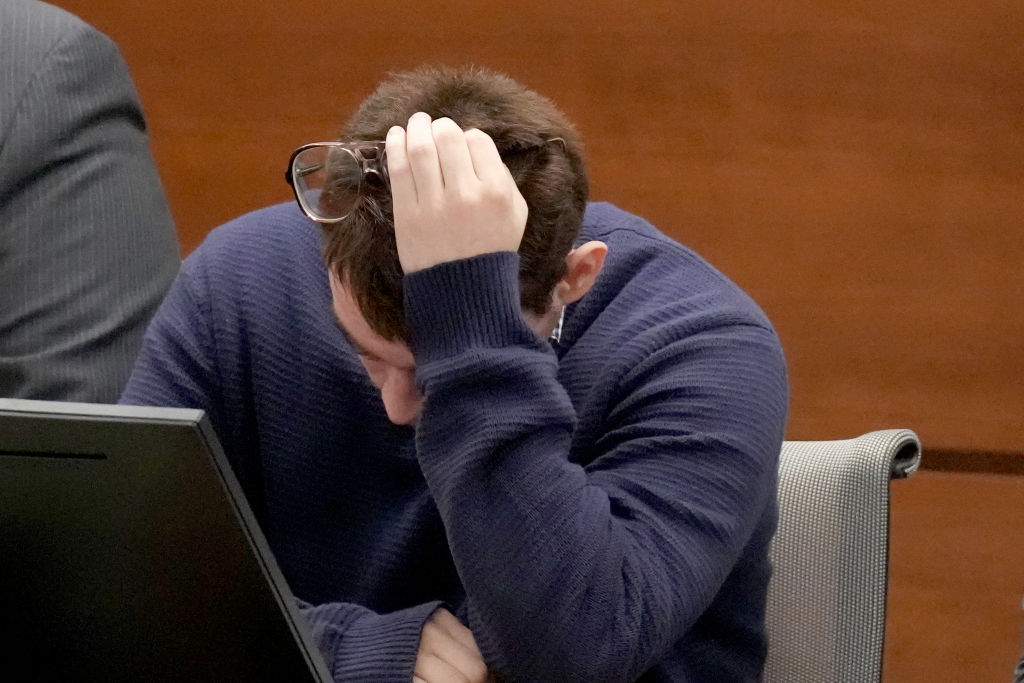Nikolas Cruz, who pleaded guilty to killing 17 people at Marjory Stoneman Douglas High School in Parkland, Florida, in 2018, believes the day will come when he will be free.
Cruz told counselor Wesley Center that when he gets out of jail, he wants to help people, The Associated Press reported.
“He had some sort of epiphany while he was in [jail] that would focus his thoughts on being able to help people,” Center told prosecutors in an interview.
“His life’s purpose was to be helping others,” the counselor said, pointing to this as evidence Cruz still had “irrational thoughts.”
The 23-year-old Cruz is facing one of two sentences — the death penalty or life without parole — in the horrific school massacre.
Prosecutors have made their case that Cruz deserves to be executed.
“The jurors also watched graphic surveillance videos; saw gruesome crime scene and autopsy photos; received emotional testimony from teachers and students who witnessed others die; and heard from tearful and angry parents, spouses and other family members about the victims and how their loved one’s death impacted their lives,” the AP reported. “They watched video of the former Stoneman Douglas student calmly ordering an Icee minutes after the shooting and, nine months later, attacking a jail guard.”
This week, the defense will make its pitch for him to receive a life sentence.
The defense will begin its case without the jury present as it tries to persuade Florida Circuit Judge Elizabeth Scherer to admit evidence from mental health analysts.
Center was at the Broward County Jail last year as part of that effort. He put probes on Cruz’s scalp for a scan to map the killer’s brain for a “quantitative electroencephalogram.”
An analysis of the results is done to compare one person’s results to a database of results from normal people.
A “qEEG can confirm what you already know, but you can’t create new knowledge,” Center has said.
Dr. Charles Epstein, an Emory University neurology professor who reviewed Center’s findings for the prosecution, said in a statement to Scherer that such a brain analysis using only external probes is imprecise, rendering the Cruz qEEG worthless.
“Garbage in, garbage out,” he wrote.
The defense hopes the test will prove evidence of fetal alcohol syndrome as it claims Cruz’s upbringing and mental health are factors that should be used to sentence him to life without parole.
An attorney not involved in the case said the evidence most likely will be admitted because the judge wants to give the defense all the room it can have.
“If it’s a close call, I think she is going to bend to the defense — and the prosecution is not going to be happy,” David Weinstein, a Miami criminal defense lawyer and former prosecutor, told the AP.
This article appeared originally on The Western Journal.

























 Continue with Google
Continue with Google